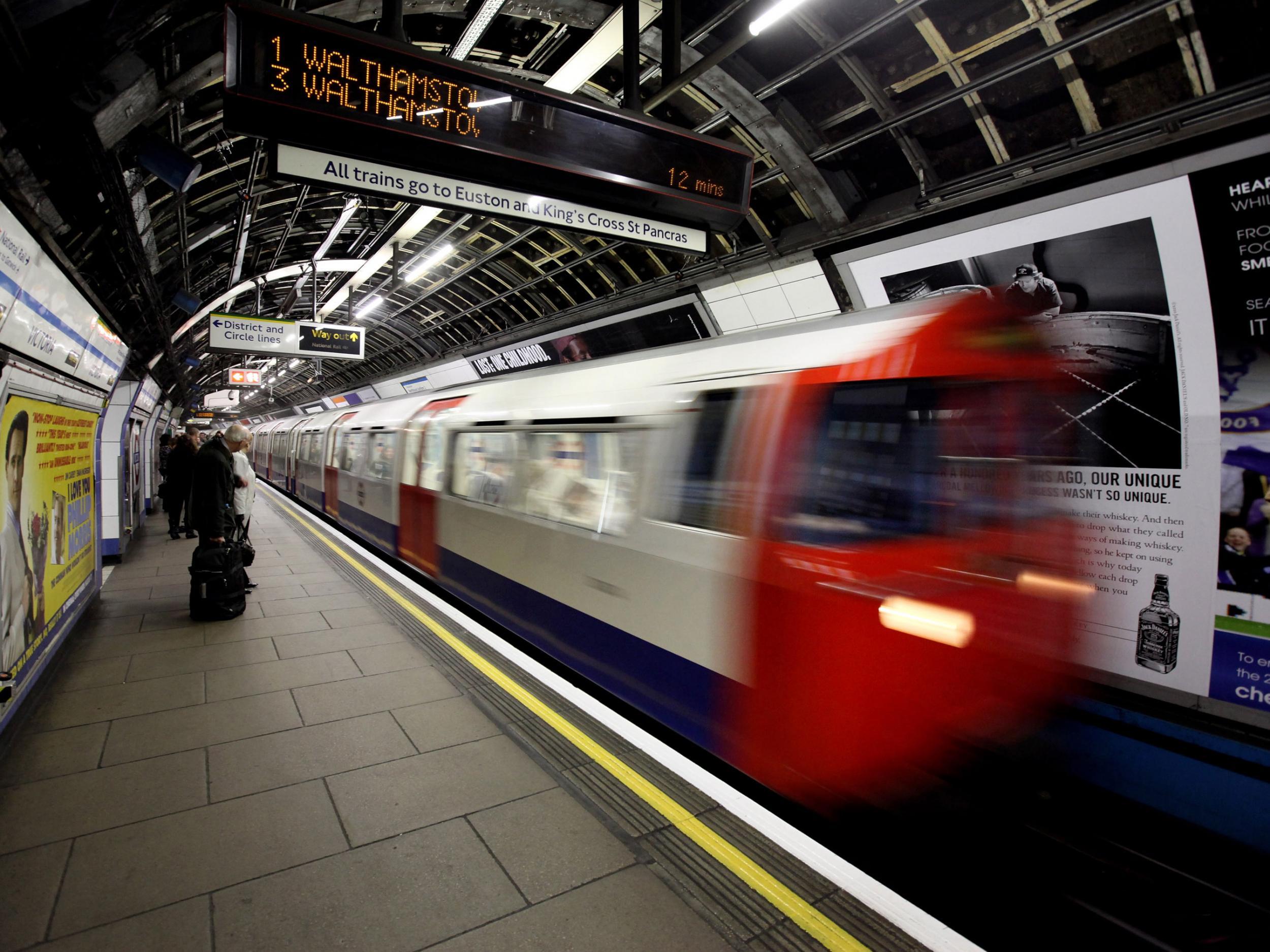Homophobic, religious and race hate crimes on public transport are soaring, figures reveal
Exclusive: Spikes witnessed after major events, including the Brexit vote

The number of hate crimes reported to police across the country’s transport network has doubled over the past five years.
Religious hate crimes on the railways, tubes and buses increased almost five-fold since 2013, while homophobic incidents saw a 200 per cent rise.
British Transport Police (BTP) figures, obtained by The Independent through a freedom of information request, showed faith-linked attacks more than quadrupled from 64 in 2013 to 294 last year.
The number of gay, lesbian or bisexual victims on the road and rail network trebled from 139 to 416, while race hate crimes jumped from 1,453 to 2,566 over the five-year period. Only disability hate crimes on public transport fell.
The figures chime with Home Office data released last year which showed hate crimes across England and Wales had jumped by almost a third in just a year.
In both sets of figures, spikes were witnessed after major events such as the murder of Lee Rigby in 2013, the Brexit vote in 2016 and last year’s Manchester Arena and London Bridge attacks.
BTP, which has suffered cuts to funding and staffing levels, said the majority of reported hate crimes were verbal rather than physical attacks.
The issue of hate crime on public transport has been in the spotlight since Transport for London was forced to apologise to the singer, Will Young, after he complained that a bus driver subjected him to homophobic abuse.
In another case on the capital’s transport network, student Will Mayrick was placed in a headlock and left struggling to breathe by two attackers on a Jubilee line train who forced him to apologise for being gay.
And BTP launched an investigation last month after a young couple were filmed being subjected to racist abuse on a train in east London.
The surge in crime on public transport is compounded by difficulties police officers face in patrolling the country's vast transport network.
Ian Mahoney, criminology lecturer at Liverpool Hope University, said attempts to increase surveillance on public transport, such as the use of CCTV, had “failed to offset the deterrent effect of having visible officers on patrol and able to respond to incidents”.
He added that the Brexit vote had emboldened those who may previously have privately harboured racist views to express them publicly. “The fact that the sharpest rise in racially motivated and faith based forms of hate crime on public transport in absolute terms has occurred since 2016 certainly points towards this,” he said.
A notable spike in the BTP's hate crime figures came immediately after the Brexit vote. In the 12 months leading up to the EU referendum, a total of 3,046 hate crimes were reported to the force. But in the year following the vote, 4,980 incidents were investigated by police.
Iman Atta, director of Tell Mama, which records anti-Muslim incidents, said recent terror attacks and a heightened awareness among the public that they can report incidents to the police had caused reported cases to spiral.
He added that the BTP was “extremely pro-active in London Underground stations to make people aware that they can report hate incidents”.
Paul Twocock, of LGBT+ campaign group Stonewall, said the figures were “extremely worrying”.
“While some may suggest this spike is due to increased confidence in reporting, we fear these figures represent just the tip of the iceberg of a rise in hate crimes against LGBT people,” he said.
“From our research into hate crime, we know that four in five anti-LGBT hate crimes go unreported, with younger people particularly reluctant to go to the police.
“We want a review of hate crime laws so that crimes based on sexual orientation, gender identity or disability are treated equally to those based on race and faith.”
The former chancellor, George Osborne, was warned in 2016 that cuts he enacted to the BTP of £3m would “risk security”. BTP’s police officer headcount now stands at its lowest level since 2012.
A BTP spokesperson said it had seen an increase in incidents after the force launched its WeStandTogether campaign to urge people to report hate crimes.
“The sort of hate crime we see on the transport network is largely verbal abuse, rather than physical attacks, but this is extremely serious and we treat every report seriously,” they added.
Subscribe to Independent Premium to bookmark this article
Want to bookmark your favourite articles and stories to read or reference later? Start your Independent Premium subscription today.
